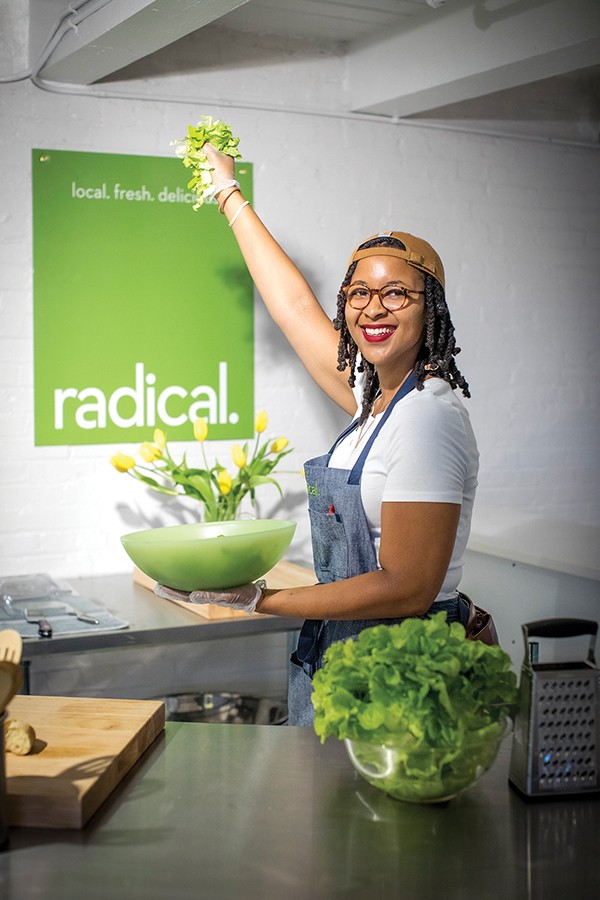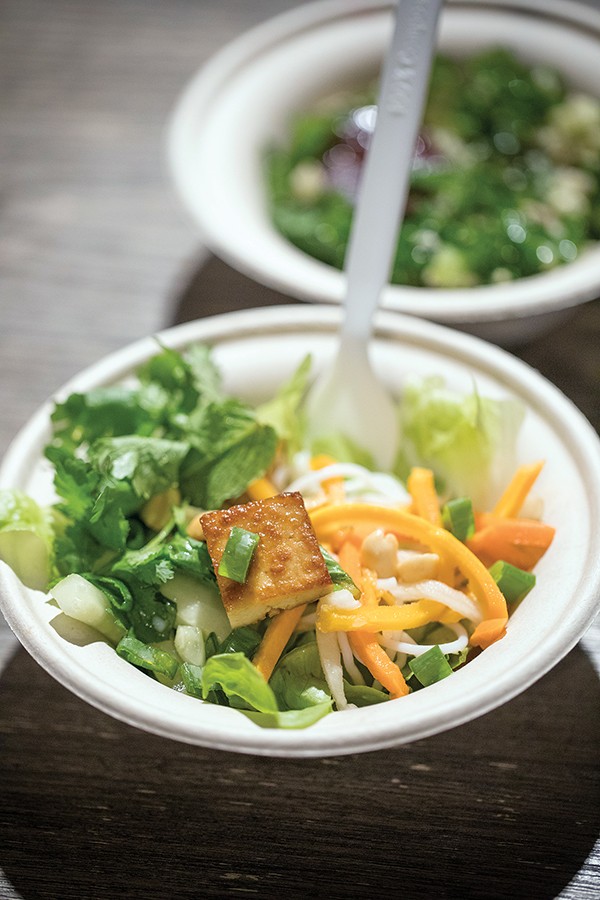“Every city that has a thriving local food economy has a team of people who are dedicated to getting food off the farm and into the city, where chefs, restaurateurs, retailers, and then, ultimately, consumers have access,” says 275 Food Project co-founder Diane Terrell.
The goal for 275 is to make Memphis one of these cities, for a more economically robust and healthier population.
Terrell, who worked with the Grizzlies Foundation, and Heather Jamerson, who was with Pyramid Peak Foundation, are the founders of the organization.
Their first order of business was providing a grant to New South Produce Cooperative, a Little Rock-based farmer-owned food hub, so that they can expand into Memphis. Jamerson envisions New South providing produce to restaurants and then expanding into institutions such as Shelby County Schools.
 Photographs by Justin Fox Burks
Photographs by Justin Fox Burks
Yolanda Manning
“But in order for that to work, there has to be more food grown on farms,” she says. “We’re working to make sure people want to buy local food and that a sales team and logistics team is on the ground to move it.”
Terrell says, “Our mission is to help realize the economic, health, and social impact of local food on the community. I think there’s consensus around the nation, perhaps around the globe, that local food does have significant health impacts. And those health impacts, particularly for a community like ours, with its high rates of diabetes and heart disease, are important for the future of our community.”
Terrell stresses the economic impact of local food. “Local food is big business,” she says. “We currently spend about $3.2 billion on food a year, and only one percent of that spend stays local, so 98 percent of it goes to farmers, food producers in California, Mexico, all over the world. Our goal is to move that one percent spend to a 20 percent spend. The economic impact of that could be as high as one and a half billion dollars. That’s increased prosperity to farmers, more jobs, more opportunities for entrepreneurs.”

275 Food Project’s second move was to establish radical. radical. (yep, with lower case “r” and the period) is one of the new vendors in the recently relaunched food hall at 409 S. Main, now known as Puck Food Hall.
radical. serves salads with ingredients sourced from farmers within a 275-mile radius. When the weather cools, they may add soups to the menu.
Yolanda Manning is the general manager. She did something really radical. She moved from Nashville to Memphis, went vegan, and lost nearly 100 pounds. She then went on to found Arabas Sweet Spot, a vegan cookie and sweets company (currently available at radical. and Inspire Cafe).
It was that entrepreneurial spark that drew Manning, Terrell, and Jamerson together because one of the things that Terrell and Jamerson vowed to do was support black entrepreneurs such as Manning.
radical.’s current hours are 11 a.m. to 4 p.m., Tuesday through Friday. Right now, its menu features a salad called the Radical Difference, which is inspired by Bun Thit Nuong, with pork shoulder, green lettuce, and rice noodles. It’s punched up with fresh basil, pickled carrots, and peanuts. The Radical Revolution is kale massaged in a lemon/black pepper vinaigrette and tossed with a citrus-infused quinoa. Pistachios, cucumbers, and green onions add crunch. Chicken or tofu can also be added for protein.
The ingredients for all the salads are sourced from area farms like Delta Sol, Ly Vu, and Rose Creek.
As for the punctuation of radical., Terrell explains that it was the brainchild of a graphic designer, but it is one that singularly fits. “The idea of a salad stall that aspired to 80 percent local sourcing is radical, right?” she says. “It’s radical — period.”
Other plans in the works for 275 Food Project are a market at Harbor Landing, mentoring projects, and a container restaurant in Soulsville.
Terrell and Jamerson stress that such work within the local food system is vitally important. “If this gap isn’t closed,” Terrell says, “none of our other ambitions or aspirations for the city will be realized.”